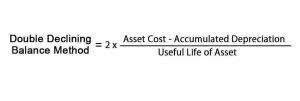
We get it, it’s why we created a mental health insurance billing service after all. While specific predictions about the future of behavioral health billing and coding are uncertain, it’s clear that the field will continue to become more complex and technologically mental health billing for dummies driven. Healthcare providers must stay informed and adaptable to navigate these changes successfully. Providers must stay current with the CPT codes and use them appropriately to ensure accurate billings and reimbursement for mental health services. To ensure the financial health of your mental health practice, fast, efficient, and effective mental health billing services are essential.

Re-File Insurance Claim As Corrected on CMS1500 Form
Mental healing requires a lot of collaboration between the medical professional and the patient. Partial or incomplete coordination of care will have adverse impacts and will only bring in several inconveniences and discrepancies for both practice and patients. This is yet one more reason why https://www.bookstime.com/articles/what-is-order-of-liquidity mental health providers choose billing services like TheraThink to help. This mental health insurance billing for dummies guide is just simply not the place to explain the vast number of ways that billing plays out.
- You have all the necessary patient and session information to file claims.
- We at Practolytics process medical billing for Mental and Behavioral Healthcare including Ketamine and Esketamine (Spravato®).
- Thorough documentation is not only a professional responsibility but is also vital for successful billing.
- Behavioral health billing and coding is the process of accurately documenting, submitting, and obtaining reimbursement for mental health and substance abuse treatment services.
- This part of healthcare can be the most inconvenient and time-consuming but is, unfortunately, something you will likely have to do daily as a mental health care provider.
Request Information about Authorization or Limits
If you’ve filed a claim and had it denied because the client is no longer covered by his or her old plan, you’ll need to contact the client and get their new information. If they don’t have insurance, you’ll need to try to get payment from the client. The following are a few questions and answers commonly asked regarding mental health billing. Thorough documentation is not only a professional responsibility but is also vital for successful billing.
- This procedure will give you a better idea of your patient’s insurance plan and provide them with treatment and services accordingly.
- However, regardless of the services you provide, it’s always a good idea to check that your patient is covered for the mental health services they need.
- One or more of these problems — and many other variables — can make it difficult for mental and behavioral health providers to operate their practice efficiently.
- This requires intimate knowledge of behavioral health coding, as well as access to comprehensive resources on the subject.
- Thus, if you don’t have a clearinghouse that has specific processes in place to help you with each of those mental health billing-related aspects, you should seek a new one.
- Fair warning, I’m about to bring in another general statistic to help paint the healthcare billing landscape.
Medical Coding Services

Diagnosis coding allows mental health professionals to identify different treatments, diagnoses or actions given to the patient. Diagnosis coding is documented to make it easier to categorize different mental disorders or diagnostic evaluations during therapy. Insurance companies need to see that the patient has a clear diagnosis that is medically necessary and qualifiable for covered mental health insurance. Insurance and mental health billing are closely intertwined, playing a crucial role in ensuring individuals have access to essential psychological services. Mental health insurance billing involves understanding coverage, accurate documentation, and precise coding. Mental health billing’s complexity stems from several factors distinguishing it from other medical billing practices.

Common Challenges in Mental Health Billing

If you submit a claim to a payer after the timely filing limit lapsed, you’ll receive a denial. Sometimes, https://www.instagram.com/bookstime_inc these states run insurance program choose a handful of other payers to handle Medicaid claims. Eligibility doesn’t say what providers are “in-network” and “out of network”. Thus, if you’re using an eligibility solution provider, you still need to determine that yourself using the information presented to you.
- A clean claim is formatted correctly, contains accurate information, and is free of mistakes or typos.
- Even though there are limitations to these options, this might save up a lot of time for the medical staff.
- If you aren’t sure how to submit the claim accurately, consider asking a colleague or hiring an expert.
- We must pay more attention to those factors for seamless mental health billing.
- Although troubling, receiving a denial from a payer for a claim you submitted isn’t the end of the world.
- We help our clients be more precise with their coding, documentation, and billing and save up quite a lot of time for the practice so that you can fully concentrate on patient welfare.
Betty Wainstock
Sócia-diretora da Ideia Consumer Insights. Pós-doutorado em Comunicação e Cultura pela UFRJ, PHD em Psicologia pela PUC. Temas: Tecnologias, Comunicação e Subjetividade. Graduada em Psicologia pela UFRJ. Especializada em Planejamento de Estudos de Mercado e Geração de Insights de Comunicação.

